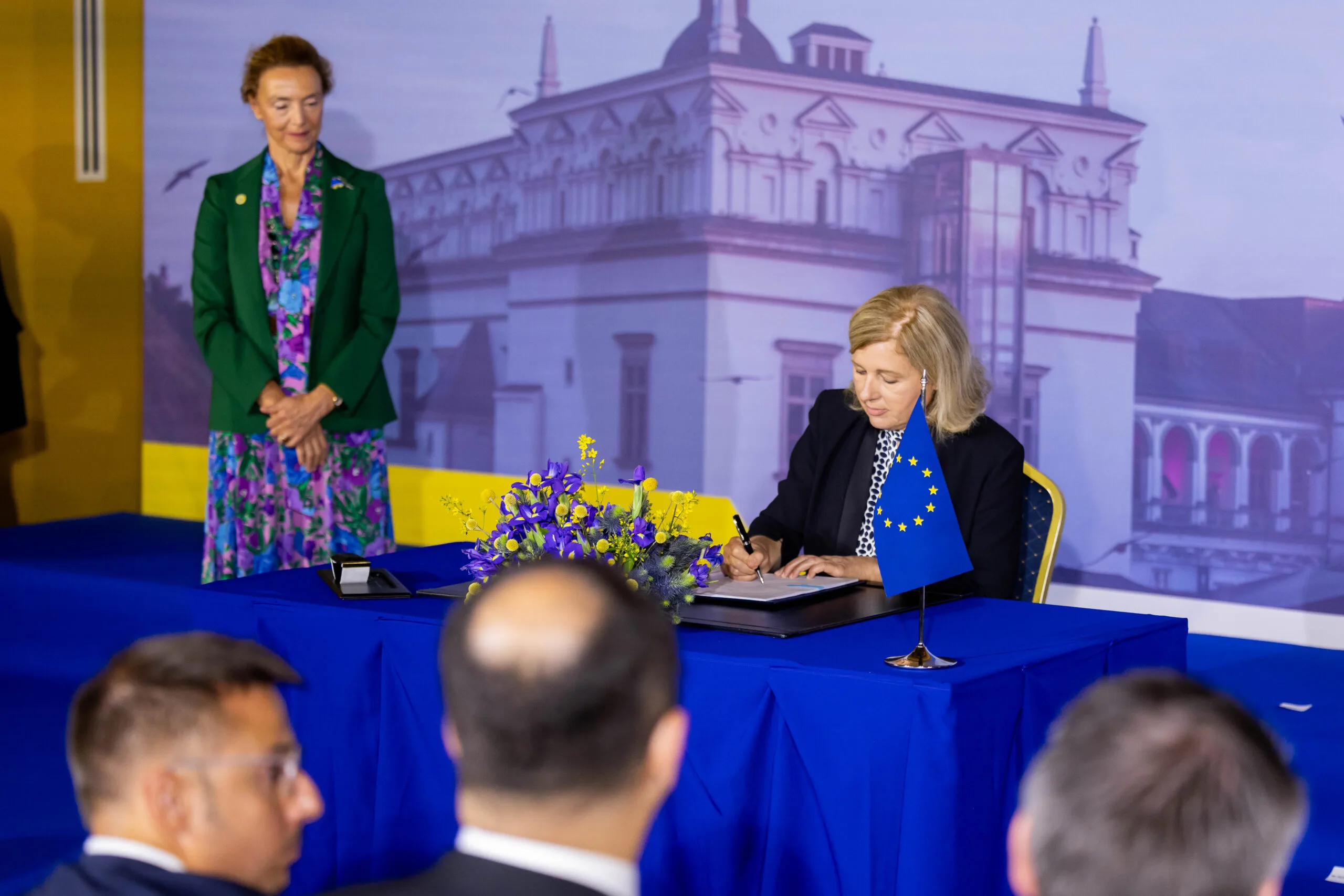Brussels – Opened for signature the Council of Europe Framework Convention on Artificial Intelligence and Human Rights, Democracy, and the Rule of Law, the first legally binding international treaty to ensure that AI systems are consistent with respect for the fundamental principles of democratic societies. The first signatories, during a Council of Europe ministerial conference in Vilnius, were Andorra, Georgia, Iceland, Norway, the Republic of Moldova, San Marino, the United Kingdom, Israel, the United States of America, and the European Union.
Following on the heels of what was done in Brussels, where the European Artificial Intelligence Act came into force in August, the treaty provides a legal framework that covers the entire lifecycle of AI systems and promotes their advancement and innovation while managing the risks it may pose to human rights, democracy, and the rule of law. Commission Vice President for Values and Transparency, Věra Jourová, signed the Convention for the European Union. “The European Artificial Intelligence Act goes global,” cheered with a post on X Ursula von der Leyen, emphasizing the treaty’s European footprint.

“In line with our Artificial Intelligence Act, it provides a common approach for reliable and innovative artificial intelligence compatible with democratic values. The EU will continue to promote innovation in the service of people,” von der Leyen added. Council of Europe Secretary General Marija Pejčinović Burić commented, “I hope that these will be the first of many signatures and that they will be followed quickly by ratifications so that the treaty can enter into force as soon as possible.”
The convention will enter into force on the first day of the month following the expiration of a three-month period after five signatories, including at least three Council of Europe member states, have ratified it. All 46 member states of the Council of Europe, an international organization whose purpose is to promote democracy and human rights based in Strasbourg, negotiated the drafting of the treaty, along with 11 non-member states (Argentina, Australia, Canada, Costa Rica, the Holy See, Israel, Japan, Mexico, Peru, the United States of America and Uruguay). Representatives from the private sector, civil society, and academia contributed as observers.
“We need to make sure that the rise of AI supports our standards rather than undermine them. The Framework Convention is designed to ensure just that. It is a strong and balanced text, the result of the open and inclusive approach with which it was drafted and which ensured that it benefited from multiple and expert perspectives. The Framework Convention is an open treaty with a potentially global scope,” Pejčinović Burić concluded.
English version by the Translation Service of Withub







